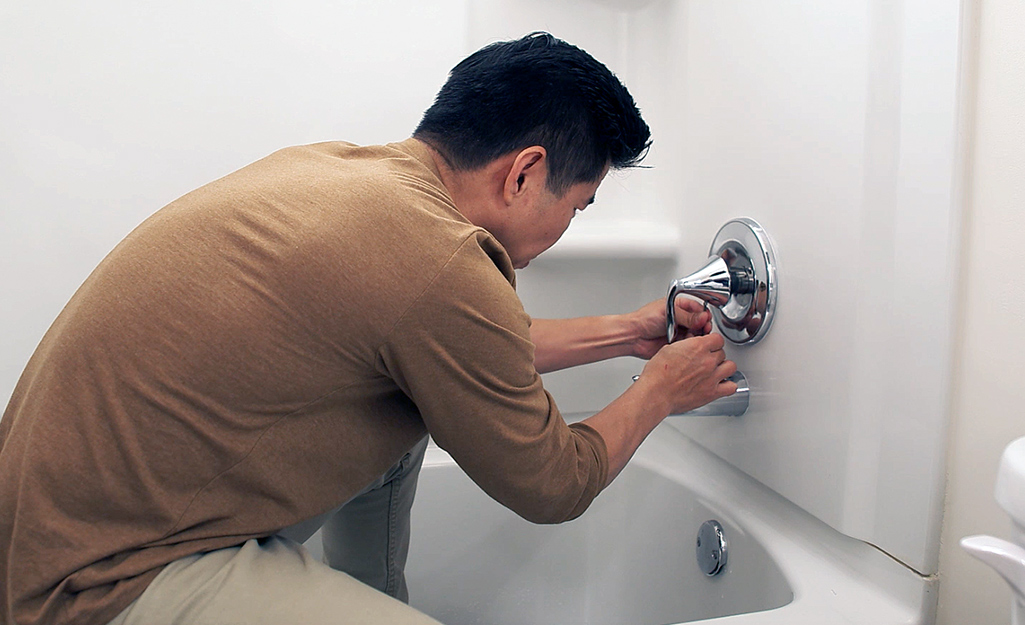The content on the next paragraphs on the subject of Why Are My Faucets Dripping (And Can I Fix It Myself)? is quite insightful. Have a go and draw your own personal conclusions.

Dripping faucets might look like a small trouble, but their influence surpasses simply the aggravation of the noise. From wasting water to sustaining unnecessary economic prices and health risks, neglecting a dripping faucet can result in various consequences. In this article, we'll explore why it's critical to resolve this common house concern without delay and successfully.
Wastage of Water
Ecological Influence
Dripping faucets add substantially to water wastefulness. According to the Environmental Protection Agency (EPA), a single tap dripping at one drip per second can squander greater than 3,000 gallons of water per year. This not just pressures water resources however likewise influences communities and wild animals depending on them.
Financial Costs
Enhanced Water Costs
Beyond the environmental impact, trickling taps can inflate water bills substantially. The accumulated waste with time translates into greater energy expenditures, which might have been avoided with timely repairs.
Possible Residential Or Commercial Property Damages
In addition, long term trickling can bring about harm to fixtures and surfaces surrounding the tap. Water accumulation can create discoloration, corrosion, and even structural concerns if left ignored, resulting in additional repair work costs.
Health and wellness Worries
Mold and Mold Development
The constant presence of wetness from a trickling faucet produces an excellent setting for mold and mildew and mold development. These fungis not just endanger interior air high quality but also position health and wellness risks, particularly for individuals with respiratory system conditions or allergic reactions.
Waterborne Illness
Stagnant water in leaking faucets can come to be a breeding ground for microorganisms and other microorganisms, raising the risk of waterborne illness. Impurities such as Legionella bacteria thrive in stationary water, potentially bring about major health problems when consumed or inhaled.
DIY vs. Professional Repair work
Pros and Cons of Do It Yourself Repair Work
While some may try to deal with a leaking tap themselves, DIY repairs come with their very own collection of difficulties. Without correct knowledge and tools, DIY attempts can aggravate the issue or result in incomplete repair services, lengthening the trouble.
Advantages of Employing a Specialist Plumber
Working with an expert plumber makes certain that the underlying source of the trickling tap is resolved effectively. Plumbings possess the expertise and equipment to identify and repair tap concerns efficiently, saving time and decreasing the threat of further damage.
Step-by-Step Overview to Repairing a Dripping Tap
Devices Needed
Before trying to take care of a dripping faucet, collect the required devices, including a flexible wrench, screwdrivers, replacement parts (such as washers or cartridges), and plumber's tape.
Typical Faucet Issues and Their Solutions
Recognize the sort of faucet and the specific problem triggering the drip. Common problems consist of worn-out washing machines, rusty valve seats, or faulty O-rings. Describe supplier instructions or on the internet tutorials for detailed guidance on fixings.
Preventive Measures
Regular Upkeep Tips
To stop dripping faucets, carry out regular upkeep such as cleansing aerators, checking for leakages, and replacing worn-out parts without delay. In addition, think about installing water-saving tools or upgrading to more effective fixtures.
Relevance of Prompt Fixes
Dealing with dripping faucets as soon as they're seen protects against further water waste and potential damages, eventually saving both water and cash over time.
Influence On Residential Or Commercial Property Value
Understanding of Well-Maintained Home
Keeping a residential property in good condition, including attending to maintenance problems like dripping taps, improves its regarded value and charm amongst potential buyers or occupants.
Influence on Resale Worth
Characteristics with well-kept plumbing fixtures, including taps, command greater resale worths in the real estate market. Resolving dripping faucets can contribute to a favorable impression during residential property examinations and settlements.
Environmental Obligation
Individual Payment to Conservation
Taking duty for dealing with leaking taps straightens with more comprehensive initiatives toward water conservation and ecological sustainability. Every individual's actions collectively make a substantial impact on protecting valuable sources.
Sustainable Living Practices
By prioritizing timely repair work and embracing water-saving routines, people contribute to sustainable living methods that benefit both present and future generations.
Conclusion
Attending to a trickling tap exceeds mere ease; it's an important step towards saving water, reducing monetary prices, and securing health and residential property. Whether through do it yourself fixings or expert help, doing something about it to repair leaking faucets is a little yet impactful means to advertise responsible stewardship of resources and add to a healthier, much more lasting future.
How to Fix a Leaky Faucet: Step-by-Step Repair Guide
A leaky faucet may seem like a simple annoyance, but if it's not fixed promptly, that leak could cost hundreds to potentially thousands. From water damage to mold, mildew, and high water bills, even a tiny leak can be catastrophic if left unattended. Damage like this can even affect the overall value of your home, so it's important to take the right approach for leaky faucet repair. You may need the help of a plumber in some cases, but we've got a few tips you can try on how to fix a leaky faucet before calling the pros.
Four Faucet Types
When you're learning how to fix a leaky faucet, the first step is knowing what kind of faucet you're working with! There are four common types.
Cartridge Faucets
Cartridge faucets come in one- or two-handled varieties. In one-handled cartridge faucets, hot and cold water combines in a single cartridge. In the two-handled versions, hot and cold water are controlled separately and mixed in the faucet.
Ball Faucets
Ball faucets have a single lever you push up and down to adjust the pressure and rotate to change the temperature. A slotted metal ball controls the amount of water allowed into the spout.
Compression Washer Faucets
They're the oldest type of faucet, but they're still used in many homes — especially older ones. Compression faucets have two separate handles that, when turned, raise or lower the washer that seals a water valve. This valve stops water from flowing through the faucet when it is turned off.
Disc Faucets
Disc faucets rarely need to be repaired due to their maintenance-free design. The water flow is controlled by two discs — the upper one raises and lowers against a fixed lower disc, creating a watertight seal. If your disc faucet starts leaking, you may need to replace the seals or clean residue buildup from the inlets.
Fixing a Leaky Faucet
Step 1: Turn Off the Water
Whether you're learning how to fix a leaky bathtub faucet or how to fix a leaky kitchen faucet, always turn off the water supply to your working area when you're fixing a leak. The last thing you want is a flood added to your list of things to fix.
Look for the shutoff valves below your sink or around the tub and turn them clockwise to stop the water flow. If your faucet doesn't have shutoff valves, you may need to turn off the water for the whole house. Check to make sure it's off by turning the faucet on. If nothing comes out, you're ready to start the repair.
Step 2: Take Apart the Faucet
How you disassemble your faucet depends on the type of fixture you have. You can use a flathead screwdriver to remove the caps on top of the handle or handles for cartridge and compression faucets. Inside, you should see handle screws. Unscrew these with a screwdriver to remove the handle.
Disc- and ball-style faucets will typically have an inlet screw near the handle, and removing that will reveal the interior of the faucet.
Detach the Valve Stem
For cartridge- and compression-style faucets, you'll see the inner valve stem or cartridge once you remove the faucet handles. If you have a compression faucet, unscrew the brass valve stem. If you have a cartridge faucet, pull out the cartridge. If your cartridge has been in place for a while, it may require some tools or extra force to remove it due to mineral deposits.
Examine and Replace Parts
Once you've removed the parts, check them out to confirm what needs to be replaced. You may see corroded rubber washers, O-rings, stems, or cartridges. On a ball-style faucet, check the seats and springs for damage.
If you need to repair a leaky disc faucet, check the inlet and seals on the lower disc.
Once you determine what parts must be replaced, visit your local hardware store. Bring the damaged parts with you to ensure you can purchase the correct components to replace them.
Clean Valves and Faucet Cavity
If you've removed a stem or cartridge, you may notice mineral buildup in the faucet's threads. Use white vinegar to clean the valve seat by soaking it for a few minutes, then scrub it away with a soft toothbrush and rinse with warm water. You can also clean the interior of the faucet in the same way.
Reassemble the Faucet
Once your faucet is cleaned and the required parts have been replaced, it's time to reassemble it. Put the pieces back together and slowly turn the water supply back on. Doing this slowly is crucial because too much initial water pressure can damage the new hardware you've just installed.
https://homewarranty.firstam.com/blog/how-to-fix-leaky-faucet

As a person who reads about Should I Repair or Replace a Leaky Faucet?, I was thinking sharing that article post was important. Enjoyed our review? Please quickly share it. Let another person discover it. I appreciate reading our article about Leaky Faucets: Why They Happen & What to Do About Them.